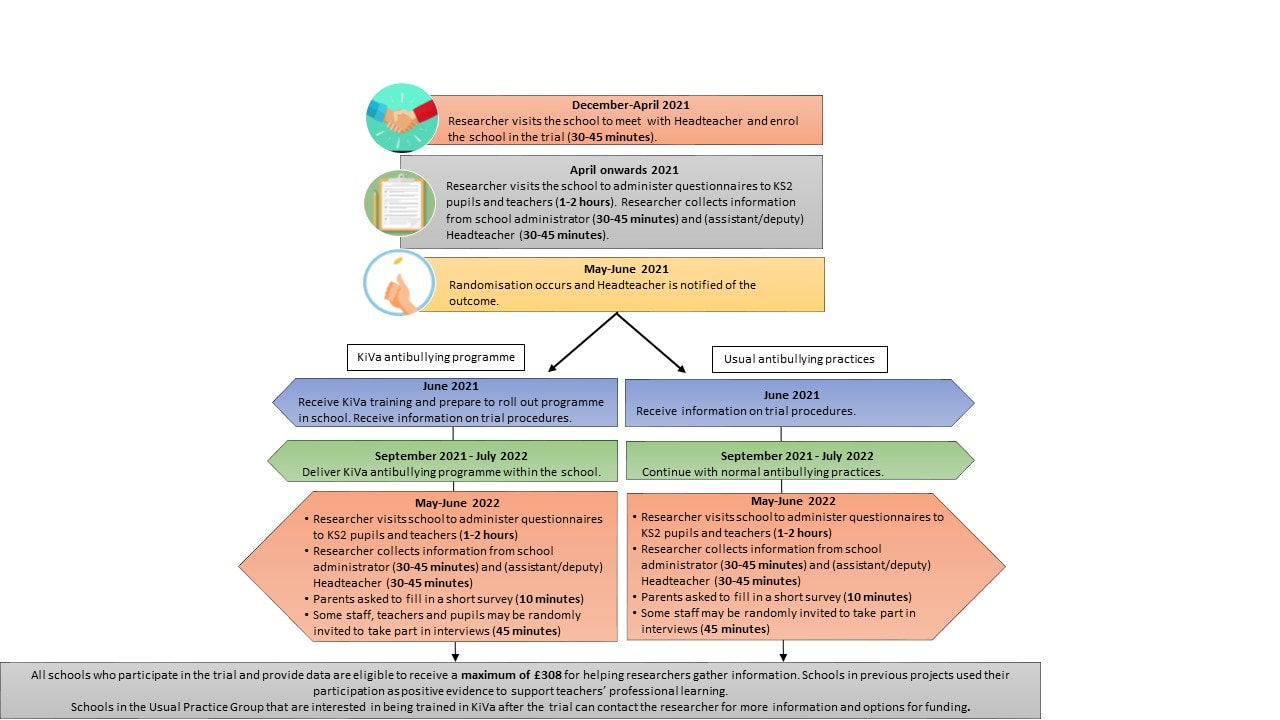We want to see whether the KiVa anti-bullying programme is more effective at reducing bullying and improving wellbeing in pupils in Years 3-6 years compared to usual anti-bullying practices. Therefore, half of the schools will be randomly selected to deliver KiVa and half will continue with usual anti-bullying strategies.
Is my school eligible to take part?
We are recruiting around 120 schools that:
- Are primary schools only (up to Year 6)
- Are state funded
- Have at least two Key Stage 2 classes
- Are within one of the four recruitment areas (North Wales, Birmingham, Devonshire and Oxfordshire)
- Deliver education through English or Welsh language
- Have leadership that can support the programme over one school year
- Have not used the KiVa programme before
- Do not already use a recognised anti-bullying programme that extends beyond standard approaches
- Do not cater solely for pupils with special educational needs (i.e. Special schools)
When does the trial run and what is involved?
We will formally start to enrol schools into the trial in December 2020. The trial will run for one school year from September 2021 to June 2022. The flow diagram below shows what happens during the trial and when.

What information will be collected?
|
Experience of bullying at school
|
|
|
What are the benefits of taking part?
All schools who participate in the trial and provide data at all applicable timepoints are eligible to receive a maximum of £308 for helping researchers gather information. The amount paid will depend on what information is provided. Schools in previous projects used their participation as positive evidence to support teachers’ professional learning. Taking part in this project will help us figure out ways to reduce bullying; a national priority.
What does it cost?
For KiVa schools, most of the running costs for the KiVa programme (usually £600-1000 depending on class size) will be covered by funding arranged by the researchers. However, teacher supply cover for the two-day KiVa training course will need to be paid by the school. There are no costs to schools who are continuing with usual practice.





